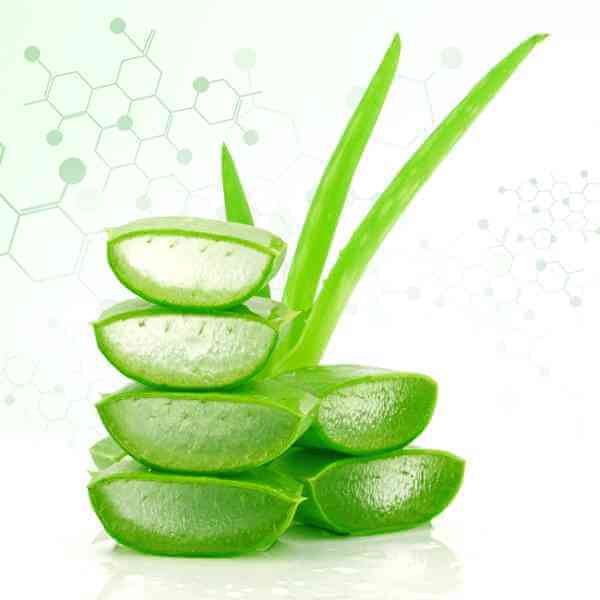
Pilot study proves “Molecular SigNatures™” persist from the raw plant to the finished extracts and then to finished nutritional and personal care products. Inherent Aloe DNA does not suffice.
STONY BROOK, N.Y. (June 27, 2017) – Applied DNA Sciences, Inc. (“Applied DNA,” “the company,” NASDAQ: APDN), has completed initial work under a funded contract with Lily of the Desert, a leading US-based producer of Aloe vera products, whose offerings include nutritional drinks, topical crèmes and gels. The pilot studies defined by the agreement are designed to demonstrate the feasibility of molecular tagging to create the industry’s first traceable and authenticated Aloe vera juices, from raw material to the manufacture of nutritional drinks and topical consumer products. Applied DNA and Lily of the Desert are working together to protect consumer supply lines, with Phase One expected to be completed within the next month.
Extracts of Aloe vera extracts represent a nearly $2 billion market, with a total mass of more than 60,000 metric tons and are expected to grow through 2026 at a compounded annual growth rate of 7.7% (Future Market Insights, 2016). The clinical utility of Aloe vera has been the subject of thousands of studies that document dermatologic and digestive impact. In a November report last year, Bloomberg stated there was no chemical evidence of Aloe vera in gels purported to contain the extract as a primary ingredient in products sold at Target, Walmart and CVS. A class action suit was filed in June of 2016 against CVS alleging there was no Aloe vera extract in their Aloe vera gels.
The challenge lies with traditional methods of verifying the content of Aloe vera in finished goods, which can be misleading in complex formulae – a problem that Applied DNA intends to resolve. Not only is Aloe vera difficult to chemically identify once processed into finished consumer products, but Applied DNA has demonstrated that manufacturing processes damage Aloe vera’s native DNA, making it impossible to rely solely on the traditional Bar Code of Life (BCOL) DNA for identification.
The solution lies in the laboratory and pilot manufacturing trials conducted by Applied DNA scientists in collaboration with Lily of the Desert. The stability and persistence of the Company’s Molecular SigNature tags have been demonstrated from raw material to nutritional supplements to fully-processed Aloe vera consumer products. With the capability to authenticate real Aloe vera juices throughout the supply chain based on a Molecular SigNatures, retailers and brands may support their label claims, and provide reassurance and certainty to consumers.
Dr. Glen Gillis, Vice President of Research and Chief Science Officer stated, “Proton NMR (Nuclear Magnetic Resonance), the current, accepted analytical technique for a detection of Aloe quality, has proven to be a powerful and accurate tool for detection of Aloe vera in many products. But as it is with any analytical technique, NMR is not without flaws. The application of “molecular tagging” to Aloe vera, a new and cutting-edge technique used in tracking of the supply chain from source to shelf, will add to the industry another layer of protection for both branded products and end-user confidence.”The same processes being employed in these pilot studies can be readily used to provide ingredient verification and supply chain security to other brands, using other natural extracts, who are seeking to reassure customers about the quality of their products.
“Consumers are increasingly demanding transparency and they want to know the origins of the ingredients in the cosmetics they purchase. With our work in Aloe vera, they are getting even more than this. They are getting forensic proof of where the materials come from, giving them transparency with certainty,” said Dr. Barbara Brockway, Director of Personal Care at Applied DNA.
Dr. James A. Hayward, President and CEO of Applied DNA, said, “Since we have previously documented the ability of our Molecular SigNatures to authenticate Aloe vera, we look forward to receiving the results of this pilot study which, if successful, have the potential to open up new commercial markets for the Company. These tags function as the equivalent of molecular certificates embedded in the Aloe vera, documenting the extract content as the product is manufactured and travels through the supply chain. A wide array of markets, from food to supplements to pharmaceuticals to personal care, stand to benefit from the specific advantages of this method of verification, literally at the frontier of supply chain science.”
About Lily of the Desert
Lily of the Desert owns the organic Aloe vera farms and processing facilities for manufacturing the numerous unique aloe vera products that carry our brand name. This is rare amongst Aloe vera companies in the natural products industry. Our Aloe vera is grown and processed in the Rio Grande Valley of Texas and the desert of Mexico. Our corporate headquarters are in Denton, Texas. The Lily of the Desert brand of Aloe vera products is the leader of the Aloe vera category in the natural products industry, exceeding the next 6 competitors in total unit sales (ref. SPINS). As a company, Lily of the Desert has maintained our commitment in ‘Retaining the Quality that Nature Created’ by making aloe vera products our customers can be confident in buying.
About Applied DNA Sciences
Applied DNA is a provider of molecular technologies that enable supply chain security, anti-counterfeiting and anti-theft technology, product genotyping and DNA mass production for diagnostics and therapeutics.
Applied DNA is a provider of molecular technologies that enable supply chain security, anti-counterfeiting and anti-theft technology, product genotyping and DNA mass production for diagnostics and therapeutics.
Visit adnas.com for more information. Follow us on Twitter and LinkedIn. Join our mailing list.
Common stock listed on NASDAQ under the symbol APDN, and warrants are listed under the symbol APDNW.
Forward-Looking Statements
The statements made by APDN in this press release may be “forward-looking” in nature within the meaning of the Private Securities Litigation Act of 1995. Forward-looking statements describe APDN’s future plans, projections, strategies and expectations, and are based on assumptions and involve a number of risks and uncertainties, many of which are beyond the control of APDN. Actual results could differ materially from those projected due to our short operating history, limited financial resources, limited market acceptance, market competition and various other factors detailed from time to time in APDN’s SEC reports and filings, including our Annual Report on Form 10-K filed on December 14, 2015, and our subsequent quarterly reports on Form 10-Q filed on February 10, 2016, May 12, 2016 and August 11, 2016 which are available at www.sec.gov. APDN undertakes no obligation to update publicly any forward-looking statements to reflect new information, events or circumstances after the date hereof to reflect the occurrence of unanticipated events, unless otherwise required by law.
Contact us
Investor Relations: Sanjay Hurry, LHAI, 212-838-3777
Media: Susan Forman, Dian Griesel Int’l, 212-825-3210
Program Contact: Dr. Barbara Brockway, +44 (0) 7484725053
web: www.adnas.com
twitter: @APDN


